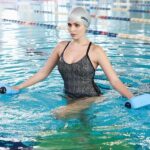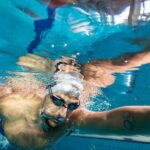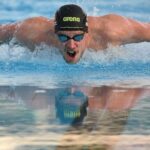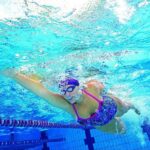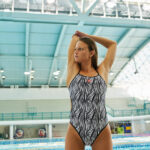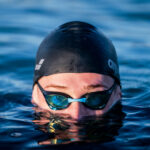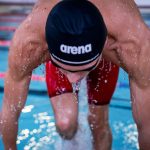Winter Training Trips – Things to Remember
It’s that time of year again. Winter Training camps are just around the corner. While training in a new (and hopefully warm) place seems dreamy, it comes with some painful practices. Keep the long, grueling workouts from pounding you into the pavement with a few tips from this swammer.
Hydrate! It’s important!
You’re probably thinking, Yes, I know it’s important to drink water! Please stop reminding me! In reality, hydration is what exercise boils down to, and Winter Training is no different. You will be training harder than you have trained all year, and your coaches will be pushing your limits. You won’t realize how much water your body is losing. The importance of staying hydrated is a no-brainer for any serious athlete. Make your water bottle your constant companion. Drink fluids constantly, even during your downtime. Electrolytes are your friends, so buy sports drinks that contain them. Your body will thank you.
Trust your coaches.
Every swimmer is guilty of it – a vicious glare at their coach as he or she stands nice and dry on the deck writing a main set that will mean unimaginable pain for their swimmers. Despite what you may think, your coaches are actually not trying to kill you. Coaches are taking advantage of this extra time without school, which means more time to train and recover. Winter Training is designed to break you down and push your body to its limits. You may feel like you are hitting rock bottom, but from this point, your coach can build from the ground up. They are shaping you into a strong and fast swimming machine. You will be primed for top performance at the end of the season. As the saying goes, “You have to go down before you can go up.”
Eat, sleep and breath swimming – literally!
Eating and sleeping comes naturally, but during Winter Training, it is even more important that you rest and nourish your body. You are burning thousands of calories a day. That energy needs to come from somewhere. When shopping for your meals, be sure to buy more than enough food to get you through the week. Proteins like eggs, meat, and fish help you build muscle, while carbs like fruits, pasta, and potatoes help you recover. Protein and energy bars, chocolate milk and bananas are great on-the-go snacks to nibble on between practices.
The same goes for resting. After your workouts, you may be so dead-on-your-feet that sleeping won’t be a problem. In any case, do not neglect your sleep! Take naps when you can. Even if the sun is out and the weather is nice, if you find yourself longing for your pillow, do not ignore it.
Winter Training is where the memories are made.
Training trips are rough, and there is no denying it. But through the pain, sweat, and possibly tears, one thing stands out more than anything else. Winter Training is the time for team bonding. Nothing helps get you through an exhausting practice more than 40 other teammates in the same boat. Friendships grow and you become very comfortable with each other. The memories you make during training trips are the ones that stick with you years later when you look back on your swimming career. Perhaps you’ll remember moments like sharing a house with 12 people when there were only five beds, or the horribly out-of-tune bus singalongs during the rides to the pool. You draw strength from your teammates and those moments you spend together. It is that strength that gets you through the season.
So, there you have it – the basics. The bottom line: Winter Training trips are designed to make you stronger, both physically and mentally. The week can be full of many grimaces, but there are just as many smiles.
Written by:
Michael Coiner
Michael Coiner spent over a decade in the competitive swimming world. Her love for the sport drove her to compete through college. Now she lives the life of a “swammer” - hopping in the pool whenever she can, eager to tell her stories to other up-and-coming swimmers. She has always had a passion for writing and has a Bachelor’s degree in Communication Studies. She currently lives in the Pacific Northwest in the United States and takes full advantage of the pristine outdoors that surround her home.
